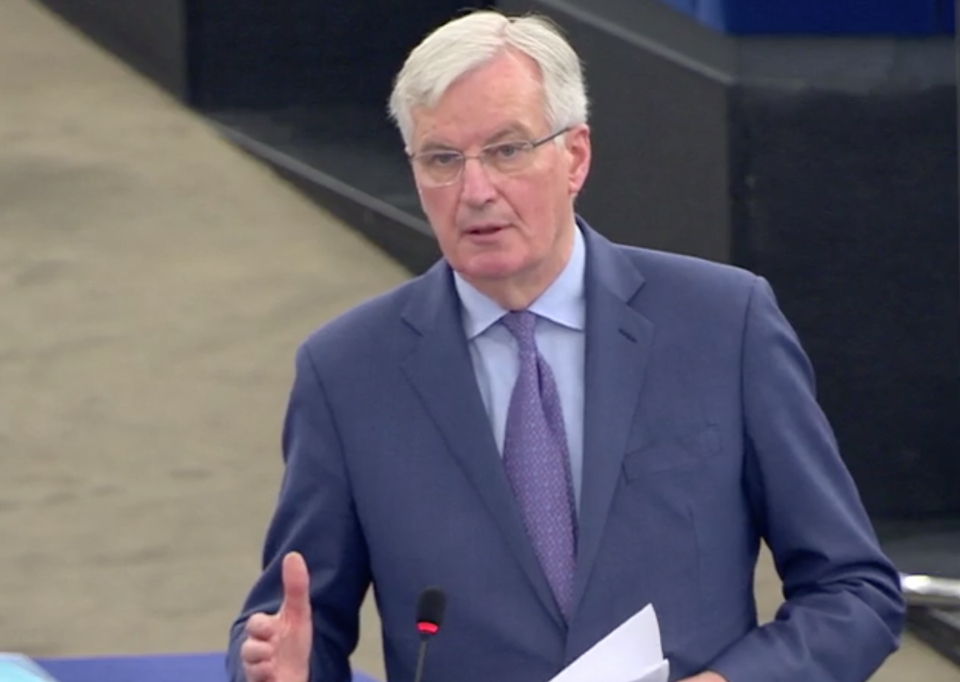Michel Barnier questions Brexit delay: ‘Why would we extend Article 50 when negotiations are over?’
Michel Barnier has questioned whether and why the EU would grant Britain an extension to Article 50, ahead of a vote by MPs on moving back the date of Brexit.
Speaking in the European Parliament the EU’s chief negotiator reiterated that negotiations were over.
“Why would we extend these discussions? The discussion on Article 50, that is done and dusted. We have the withdrawal agreement, it is there. That is the question asked and we are waiting for the answer to that,” he told MEPs.
Mr Barnier added that before the EU could make a decision on a further extension the UK would have to come up with a plan to build a “a constructive majority” in its own parliament.
“It is the responsibility of the United Kingdom – they have to tell us what it is they want for our future relations, what will their choice be? That is the question that we need an answer to now.
“That is the question that has to be answered before a decision, really, on a possible further extension.”
He was backed up by European Parliament Brexit chief Guy Verhofstadt, who told MEPs: ”I’m against every extension if it isn’t based on a clear opinion of the House of Commons for something they want. Please make up your minds in London, because this uncertainty can’t continue – not for us, not for Britain, and certainly not for our citizens.”
The pair’s comments echo those made by French president Emmanuel Macron, who said his country would block an extension of Article 50 “without a clear objective”. He added that any delay had to be “justified by a new choice of the British”.
There is little appetite in Brussels to keep kicking the can down the road, with views among EU diplomats mixed on the possibility of an Article 50 extension. Some countries are more unconditionally open to one to avoid a no-deal Brexit, while others more keen to attach conditions.
An extension would require a unanimous vote of the 27 remaining EU member states. Without their approval, Britain would crash out without a deal on 29 March 2019, unless it ratifies the withdrawal agreement or decides to revoke Article 50 completely.
Brussels washed its hands of responsibility for trying to pass the Brexit deal late on Tuesday after MPs rejected the withdrawal agreement for the second time. A spokesperson for European Council president Donald Tusk said that the EU had “done all that is possible to reach an agreement”.
“Given the additional assurances provided by the EU in December, January, and yesterday, it is difficult to see what more we can do. If there is a solution to the current impasse it can only be found in London,” he told reporters in Brussels.


